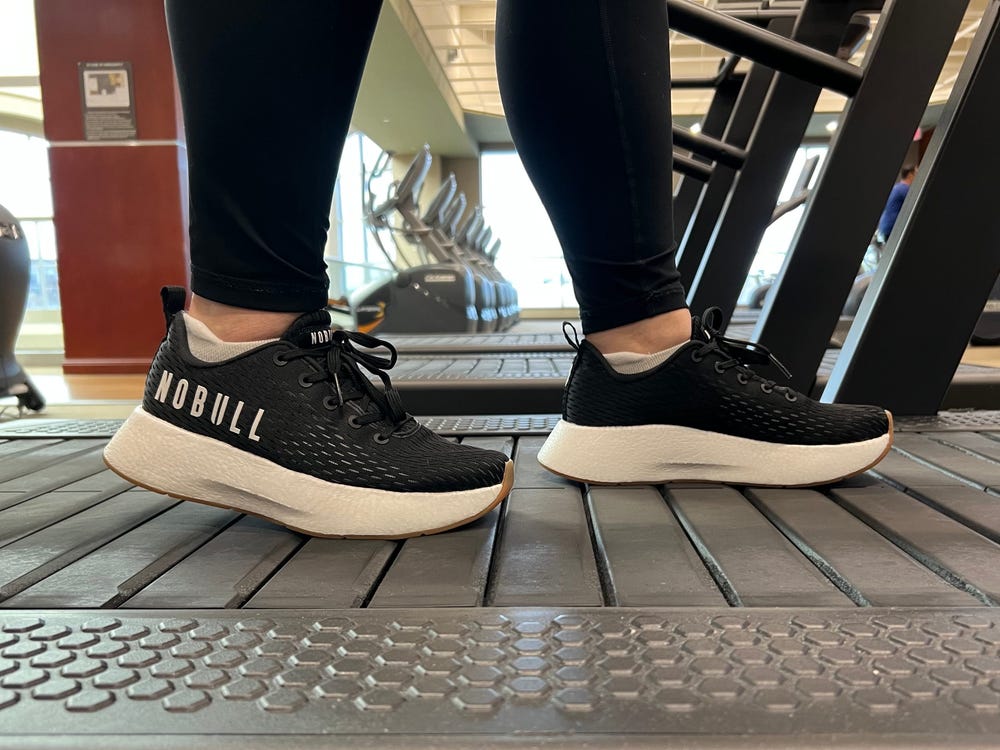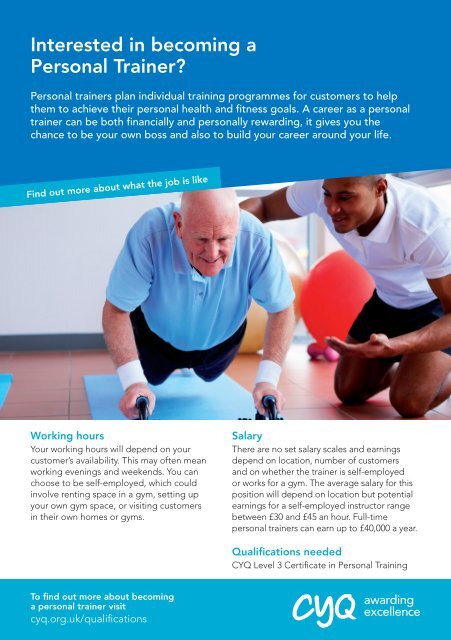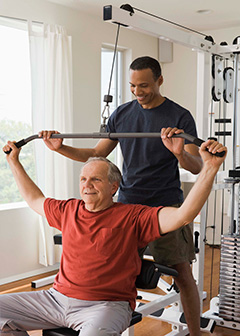
Washington DC is a city that has much to offer the fitness enthusiast. The Nationals Wizards Capitals are some of the most popular professional and collegiate sports teams in the nation's capitol. The Capital is also home to many parks, gymnasiums, fitness centres and health centers for residents to get some exercise.
Washington DC personal trainers can help you achieve your fitness goals using different methods and techniques. They help individuals design an exercise program tailored to their needs, lifestyle and interests. They must also ensure their clients have a good understanding of nutrition.
They can instruct a wide range of fitness programs including yoga, Crossfit, weight training and others. They can also train clients in different intensities.
In addition to working in gyms and fitness centers, many Washington DC personal trainers also work for social service organizations and private industries. The Washington DC personal trainers can keep themselves very busy, while still earning a nice income.

According to the U.S. Bureau of Labor Statistics (BLS), Washington DC personal trainers earn an average of $43,120 annually. However, many trainers who are self-employed can earn much more.
Washington DC is the perfect career choice for anyone looking to have an impact on others' lives with their knowledge about nutrition and exercise. It's a rewarding profession that pays well, with great work environments and friendly co-workers.
Washington DC is looking for trainers
Washington DC Personal Trainers work with all types of clients. They can be young parents or athletes to professionals and professionals that live and work there. Your expertise in the field of fitness and nutrition will be invaluable to achieving their health and wellness goals, whether they want to lose weight or improve their strength.
Washington DC's personal trainers have to teach the basics of fitness. They must also develop workout programs. They will evaluate clients' progress. And they should encourage them continue exercising long after their sessions. You can take advantage of certifications and special training to improve your credentials.
You can get certified in a few different ways. These include the American Council on Exercise, the National Strength and Conditioning Association, the National Federation of Personal Trainers and the World Instructor Training School. You can earn specialty certificates for specific areas such as injury rehab or specialized fitness.

You can become a personal trainer by going to school. Learn as much as you can about nutrition and fitness. After that, you will need to work hard in order to establish yourself within your community.
To have a successful Washington DC-area personal training career, you need to find the right niche. You also need to be the best. Finding the right niche is all about finding your area of expertise, whether it's sports, nutrition, or a group looking to get fit.
FAQ
What Are Resistance Training Exercises?
Resistance training involves using weights or other objects to perform specific movements. Lifting weights can strengthen your arms, shoulders and chest as well as your back, legs and core. Resistance training helps build muscle mass and bone density. It also promotes overall strength.
Is it possible to look too thin?
Yes! Eating disorders and being overweight are both dangerous. It's normal to be a little heavier than you should be. Also, you may feel dizzy, tired, or weak.
What if I am exercising and want to eat?
Yes. Yes. Watermelon, grapes (or carrots or celery), watermelon, grapes, apples, bananas or apples are all low-calorie snacks. These foods contain nutrients that help you perform better during workouts.
What does nutrition do to your body?
Your body can function properly if you get the proper nutrition. It is important to eat a balanced diet, rich in fruits and veggies, lean proteins, whole grain, and healthy fats.
Is it safe?
If possible, go outside. The air temperature isn't the only factor determining whether it's safe to exercise outdoors. Also, visibility, wind speed and humidity all play a significant role. Layers of clothing are recommended to protect against wind chill and rain when exercising outdoors in inclement weather.
Exercise can I help me lose weight
Yes. Yes. Regular exercise can help you lose weight and burn extra calories. Your metabolism will remain high, so you can continue to burn calories even though you're not exercising.
Statistics
- Globally, 28% of adults aged 18 and over were not active enough in 2016 (men 23% and women 32%). (who.int)
- In 2018, the World Health Assembly agreed on a global target to reduce physical inactivity by 15% by 2030 and align with the Sustainable Development Goals. (who.int)
- One study showed that adults who watch more than 4 hours of television daily had an 80% higher risk of death from cardiovascular disease. (heart.org)
- According to the Centers for Disease Control and Prevention, chronic diseases cause 7 out of 10 deaths in the U.S., and treating chronic diseases accounts for 86% of U.S. healthcare costs. (mana.md)
External Links
How To
How To Burn Belly Fats Faster
When we are trying to lose weight, belly fat is often seen as a problem. But if you think about it, Belly Fat is actually a good thing. It's the amount of fat stored around your stomach that protects your organs from getting damaged. Let's look at how to rapidly lose belly fat.
The two main factors that make us store body fat are stress and lack of exercise. Cortisol hormone is stimulated by stress, which causes us to feel constantly hungry. Cortisol increases insulin levels in our blood. The excess calories are stored as fat by insulin. Insufficient sleep can lead to an increase in appetite and adrenaline release. These extra calories can be broken down by exercising.
There are many ways you can reduce belly fat. You can choose to try any of these options, depending on your budget. These are some great tips to help you lose belly fat fast.
-
Try to eat less food. Instead of eating three large meals per day, try to eat smaller meals. This way, you'll consume fewer calories overall.
-
Get plenty of water. Water flushes out toxins in your body and helps you stay hydrated. Also, drinking water before every meal will keep you feeling full longer so you won't overeat.
-
Avoid snack foods that are unhealthy. If you're looking for quick fixes, snack foods like chips, cookies, candies, etc. Although tempting, they can be very unhealthy. But avoid these fattening treats as they contain lots of empty calories and too much sugar. Choose healthier alternatives such as whole grains, vegetables, fruits, seeds, nuts and seeds.
-
Strength training should be performed at least 3 times per week. Strength training builds muscle mass that burns more calories, even when it is done while you rest. It also strengthens bones, muscles, ligaments, tendons, the heart, lungs, and joints.
-
Regularly walk or stretch. Stretching is a great way to increase flexibility and mobility. This helps reduce back pain. Walking is great for burning calories.
-
Reduce alcohol intake. Your diet is empty of calories, and alcohol has no nutritional content.
-
Reduce your weight gradually. Your current weight is the first step to losing weight. Calculate your ideal weight by adding approximately 5% to 10% of the total weight. Once you have calculated your target weight, start reducing calorie consumption by 500-1000 calories daily until you reach your goal.
-
Avoid processed food. These foods are high on sugar, salt, and additives. While processed foods can be convenient, they don't offer enough nutrients to ensure your health.
-
Don't skip breakfast! Breakfast improves concentration, memory, energy, and stamina. Include protein (like eggs) and fiber, like oats, in your breakfast.
-
Have regular bowel movements. Gas and bloating can result from irregular bowel movements. Increase your fiber intake and drink lots of water.